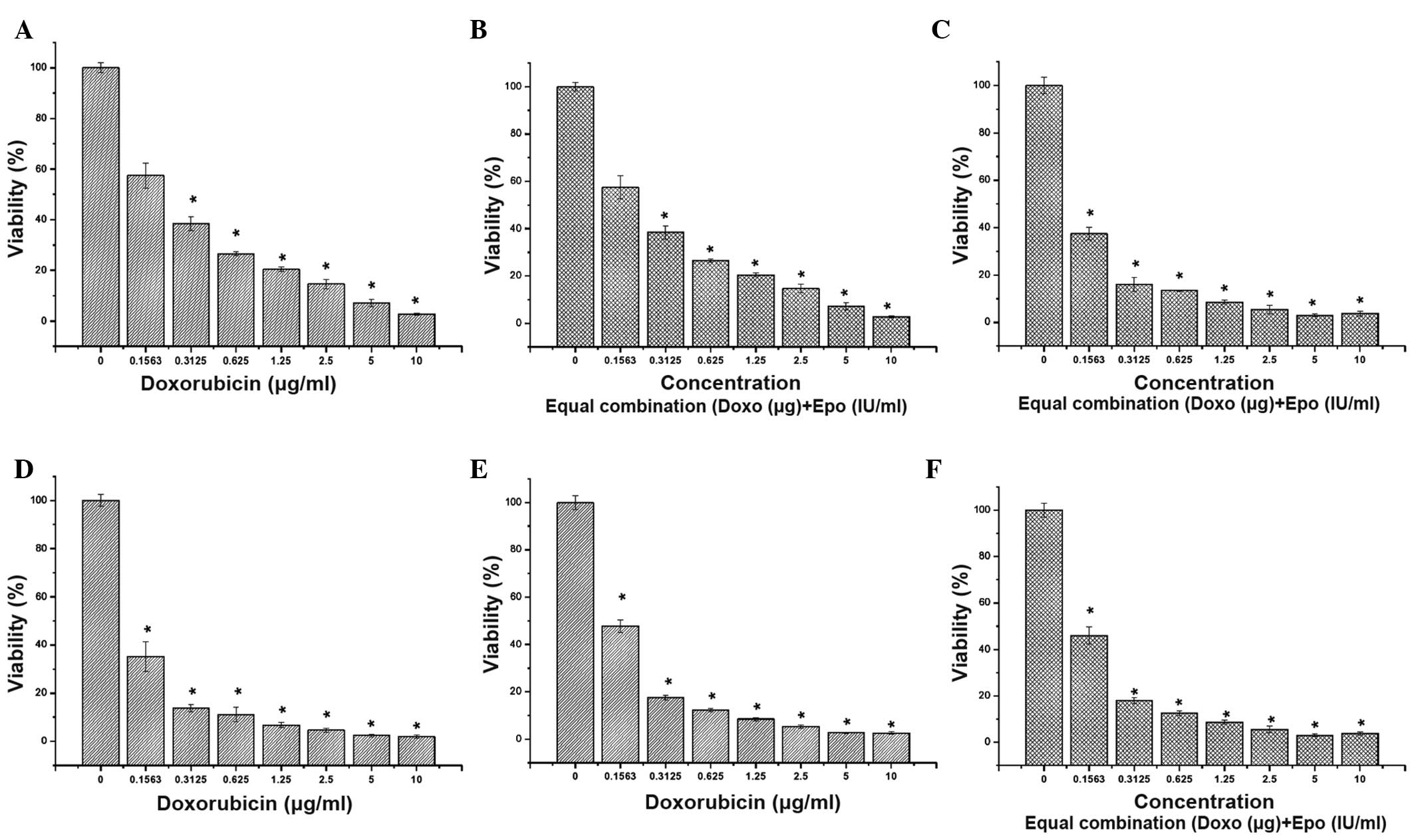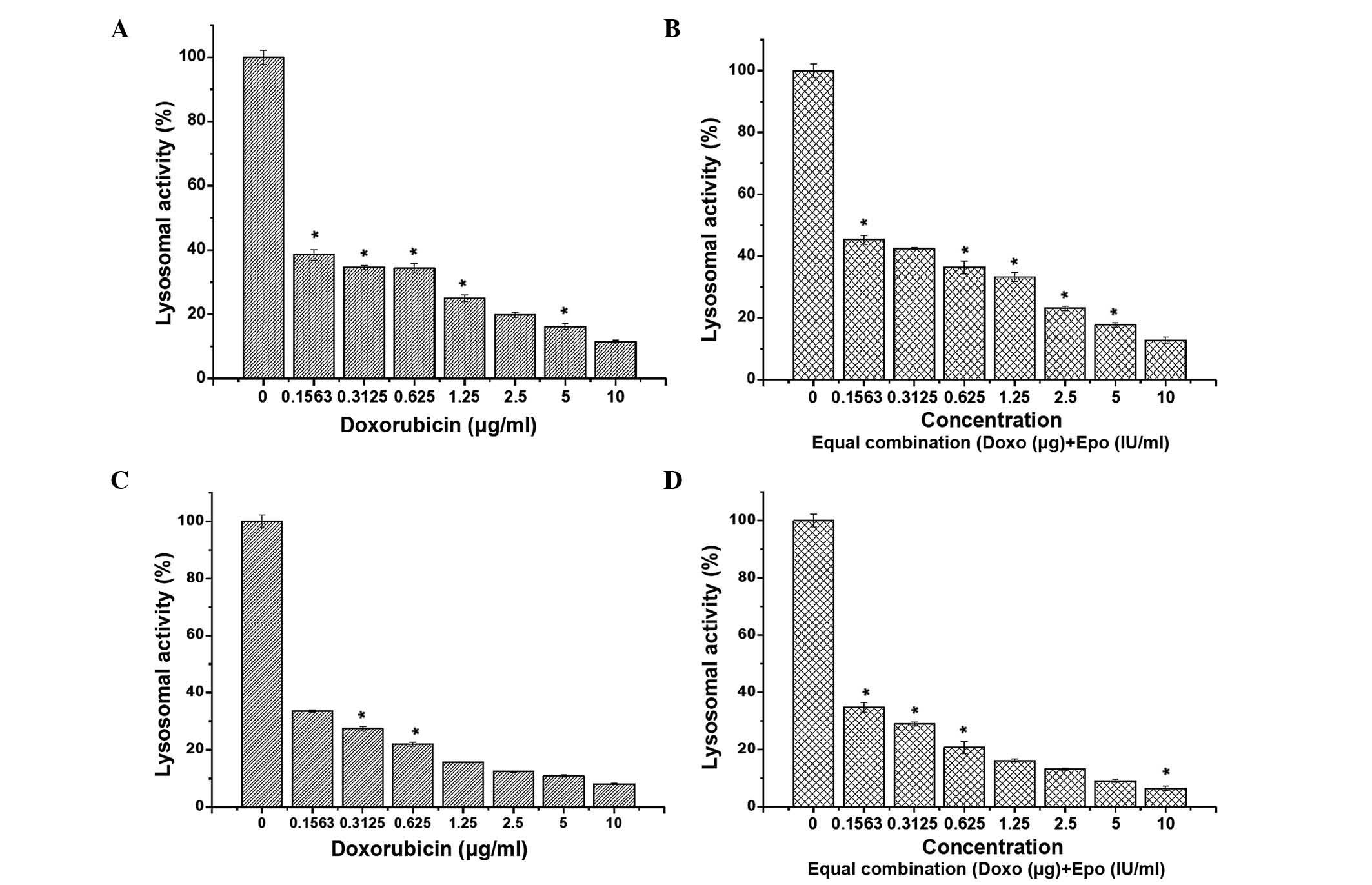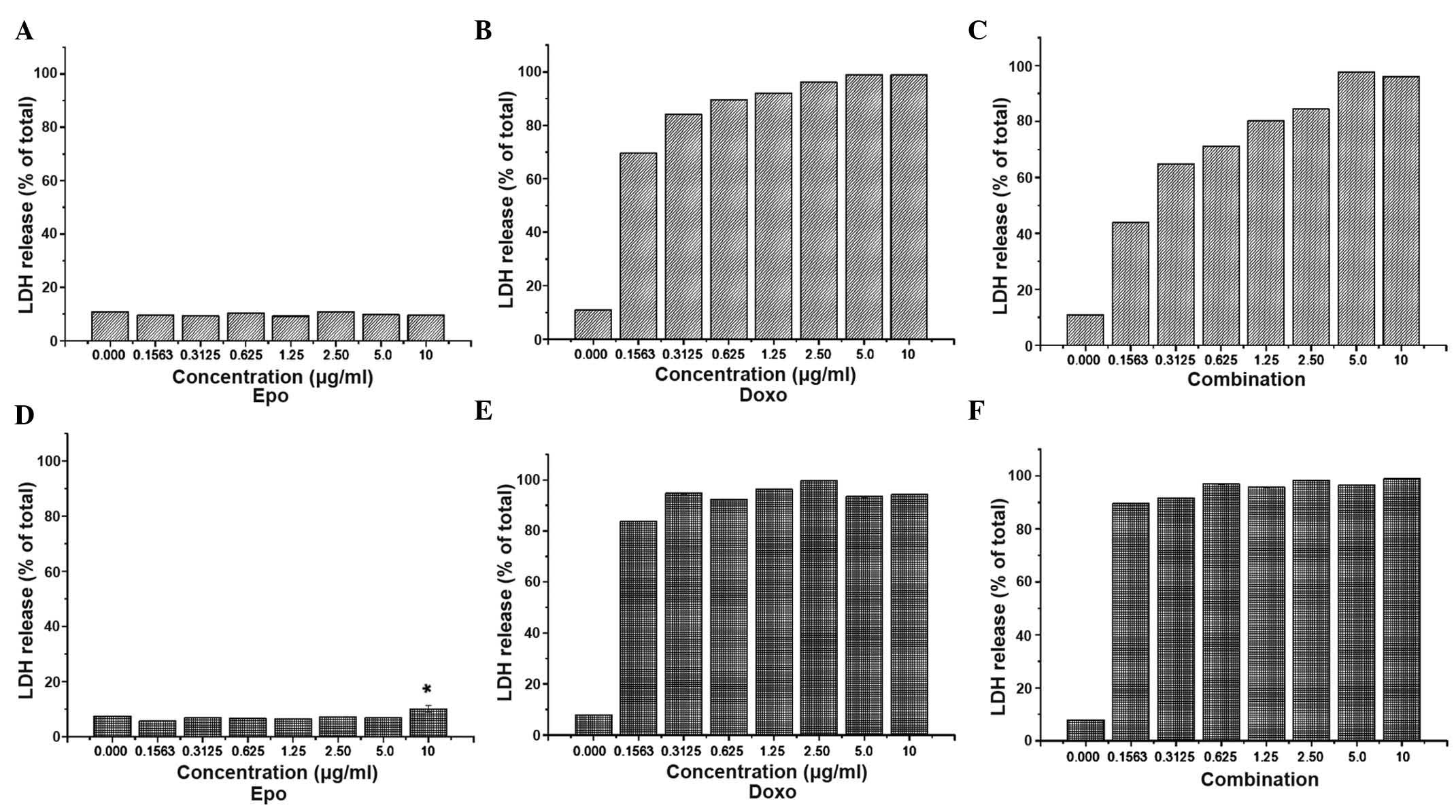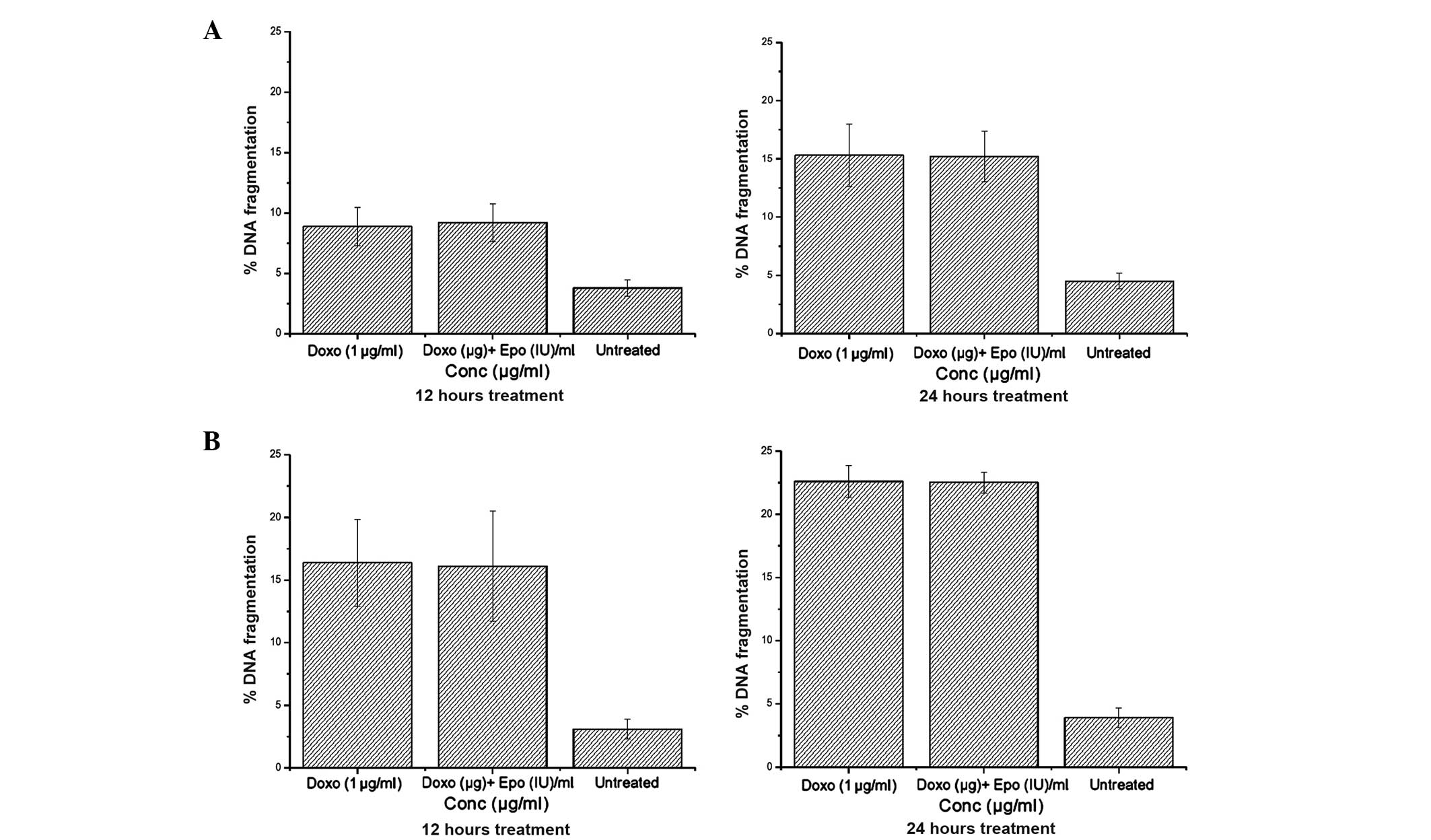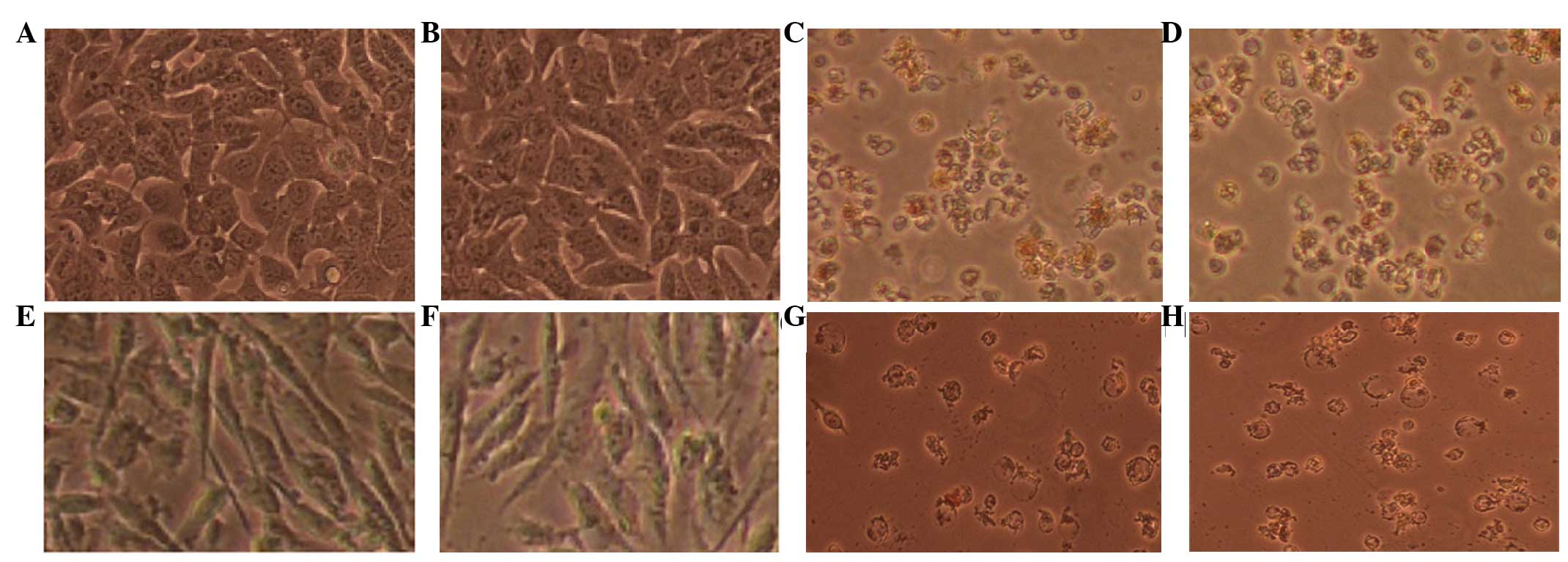|
1
|
Barrett-Lee P, Bokemeyer C, Gascón P,
Nortier JW, Schneider M, Schrijvers D and Van Belle S; ECAS
Advisory Board and Participating Centers: Management of
cancer-related anemia in patients with breast or gynecologic
cancer: New insights based on results from the European Cancer
Anemia Survey. Oncologist. 10:743–757. 2005. View Article : Google Scholar : PubMed/NCBI
|
|
2
|
Cella D: The functional assessment of
cancer therapy-Anemia (FACT-An) scale: A new tool for the
assessment of outcomes in cancer anemia and fatigue. Semin Hematol.
34(3 Suppl 2): 13–19. 1997.PubMed/NCBI
|
|
3
|
Mughal TI: Current and future use of
hematopoietic growth factors in cancer medicine. Hematol Oncol.
22:121–134. 2004. View
Article : Google Scholar
|
|
4
|
Beguin Y: Prediction of response to
optimize outcome of treatment with erythropoietin. Semin Oncol.
25(Suppl 7): 27–34. 1998.PubMed/NCBI
|
|
5
|
Beguin Y: Erythropoiesis and
erythropoietin in multiple myeloma. Leuk Lymphoma. 18:413–421.
1995. View Article : Google Scholar : PubMed/NCBI
|
|
6
|
Beguin Y and Vanstraelen G: Prediction of
response to recombinant human erythropoietin in the anemia of
cancer. Recombinant Human Erythropoietin (rhEPO) in Clinical
Oncology. Nowrousian MR: 2nd edition. Springer; New York, NY: pp.
541–582. 2008, View Article : Google Scholar
|
|
7
|
Leonard RC, Untch M and Von Koch F:
Management of anaemia in patients with breast cancer: Role of
epoetin. Ann Oncol. 16:817–824. 2005. View Article : Google Scholar : PubMed/NCBI
|
|
8
|
Aapro M, Leonard RC, Barnadas A, Marangolo
M, Untch M, Malamos N, Mayordomo J, Reichert D, Pedrini JL, Ukarma
L, et al: Effect of once-weekly epoetin beta on survival in
patients with metastatic breast cancer receiving
anthracycline-and/or taxane-based chemotherapy: Results of the
breast cancer-anemia and the value of erythropoietin (BRAVE) study.
J Clin Oncol. 26:592–598. 2008. View Article : Google Scholar : PubMed/NCBI
|
|
9
|
Seal S, Thompson D, Renwick A, Elliott A,
Kelly P, Barfoot R, Chagtai T, Jayatilake H, Ahmed M, Spanova K, et
al: Truncating mutations in the Fanconi anemia J gene BRIP1 are
low-penetrance breast cancer susceptibility alleles. Nat Genet.
38:1239–1241. 2006. View
Article : Google Scholar : PubMed/NCBI
|
|
10
|
Hale SA, Wong C and Lounsbury KM:
Erythropoietin disrupts hypoxia-inducible factor signaling in
ovarian cancer cells. Gynecol Oncol. 100:14–19. 2006. View Article : Google Scholar
|
|
11
|
Fisher JW: Erythropoietin: Physiology and
pharmacology update. Exp Biol Med (Maywood). 228:1–14. 2003.
|
|
12
|
Fu P and Arcasoy MO: Erythropoietin
protects cardiac myocytes against anthracycline-induced apoptosis.
Biochem Biophys Res Commun. 354:372–378. 2007. View Article : Google Scholar : PubMed/NCBI
|
|
13
|
Lappin TR, Maxwell AP and Johnston PG:
EPO's alter ego: Erythropoietin has multiple actions. Stem Cells.
20:485–492. 2002. View Article : Google Scholar : PubMed/NCBI
|
|
14
|
Henderson IC, Berry DA, Demetri GD,
Cirrincione CT, Goldstein LJ, Martino S, Ingle JN, Cooper MR, Hayes
DF, Tkaczuk KH, et al: Improved outcomes from adding sequential
paclitaxel but not from escalating Doxorubicin dose in an adjuvant
chemotherapy regimen for patients with node-positive primary breast
cancer. J Clin Oncol. 21:976–983. 2003. View Article : Google Scholar : PubMed/NCBI
|
|
15
|
Ayers M, Symmans WF, Stec J, Damokosh AI,
Clark E, Hess K, Lecocke M, Metivier J, Booser D, Ibrahim N, et al:
Gene expression profiles predict complete pathologic response to
neoadjuvant paclitaxel and fluorouracil, doxorubicin and
cyclophosphamide chemotherapy in breast cancer. J Clin Oncol.
22:2284–2293. 2004. View Article : Google Scholar : PubMed/NCBI
|
|
16
|
Kirshner J, Hatch M, Hennessy DD, Fridman
M and Tannous RE: Anemia in stage II and III breast cancer patients
treated with adjuvant doxorubicin and cyclophosphamide
chemotherapy. Oncologist. 9:25–32. 2004. View Article : Google Scholar : PubMed/NCBI
|
|
17
|
Melichar B, Solichova D, Melicharova K,
Cermanova M, Urminska H and Ryska A: Systemic immune activation,
anemia and thrombocytosis in breast cancer patients treated by
doxorubicin and paclitaxel. Pteridines. 17:107–114. 2006.
View Article : Google Scholar
|
|
18
|
Shuai X, Ai H, Nasongkla N, Kim S and Gao
J: Micellar carriers based on block copolymers of poly
(epsilon-caprolactone) and poly (ethylene glycol) for doxorubicin
delivery. J Control Release. 98:415–426. 2004. View Article : Google Scholar : PubMed/NCBI
|
|
19
|
Lewin SN, Mutch DG, Whitcomb BP, Liapis H
and Herzog TJ: Three cases of hemolytic uremic syndrome in ovarian
cancer patients treated with combination gemcitabine and pegylated
liposomal doxorubicin. Gynecol Oncol. 97:228–233. 2005. View Article : Google Scholar : PubMed/NCBI
|
|
20
|
Kang KW, Chun MK, Kim O, Subedi RK, Ahn
SG, Yoon JH and Choi HK: Doxorubicin-loaded solid lipid
nanoparticles to overcome multidrug resistance in cancer therapy.
Nanomedicine. 6:210–213. 2010.PubMed/NCBI
|
|
21
|
Gewirtz DA, Di X, Walker TD and Sawyer ST:
Erythropoietin fails to interfere with the antiproliferative and
cytotoxic effects of antitumor drugs. Clin Cancer Res.
12:2232–2238. 2006. View Article : Google Scholar : PubMed/NCBI
|
|
22
|
Jemmerson R, Laplante B and Treeful A:
Release of intact, monomeric cytochrome c from apoptotic and
necrotic cells. Cell Death Differ. 9:538–548. 2002. View Article : Google Scholar : PubMed/NCBI
|
|
23
|
Novikoff AB: Lysosomes in the physiology
and pathology of cells: contributions of staining methods. Ciba
Foundation Symposium-Lysosomes. de Reuck AVS and Cameron MP: pp.
36–77. 2008
|
|
24
|
Bonifacino JS and Traub LM: Signals for
sorting of transmembrane proteins to endosomes and lysosomes. Annu
Rev Biochem. 72:395–447. 2003. View Article : Google Scholar : PubMed/NCBI
|
|
25
|
Lloyd JB: Lysosome membrane permeability:
Implications for drug delivery. Adv Drug Deliv Rev. 41:189–200.
2000. View Article : Google Scholar : PubMed/NCBI
|
|
26
|
Macintyre AC and Cutler DJ: The potential
role of lysosomes in tissue distribution of weak bases. Biopharm
Drug Dispos. 9:513–526. 1988. View Article : Google Scholar : PubMed/NCBI
|
|
27
|
Dörrie J, Gerauer H, Wachter Y and Zunino
SJ: Resveratrol induces extensive apoptosis by depolarizing
mitochondrial membranes and activating caspase-9 in acute
lymphoblastic leukemia cells. Cancer Res. 61:4731–4739.
2001.PubMed/NCBI
|
|
28
|
Porter AG and Jänicke RU: Emerging roles
of caspase-3 in apoptosis. Cell Death Differ. 6:99–104. 1999.
View Article : Google Scholar : PubMed/NCBI
|















